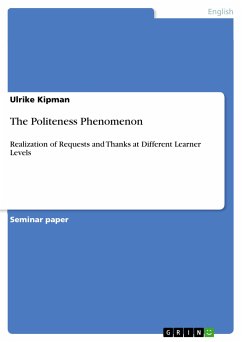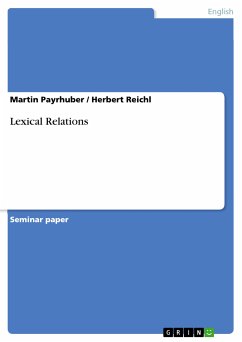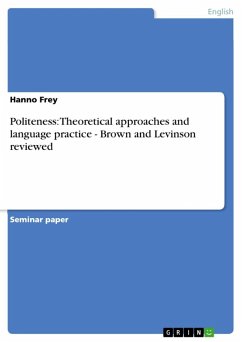Seminar paper from the year 2010 in the subject English Language and Literature Studies - Linguistics, grade: 2,0, http://www.uni-jena.de/ (Institut für Anglistik/Amerikanistik), course: Historical Linguistics, language: English, abstract: Language change is a steadily continuing process. Languages were changing 2000 years ago. They are changing today and they will certainly be changing in the future. So we are able to determine different steps in the development of the English language: roughly speaking, Old English, Middle English, and Modern English. All of them are different from each other in terms of semantics, phonology, or morphology. In this manner, morphological and syntactic, phonological, lexical and semantic characteristics of a particular language are altering all the time. These processes may happen consciously or unconsciously. They may be perceived by the speakers of the respective language or they may be not. However, this process is always going on. Furthermore, there are lots of motivations causing those changes. As an example, the ambition to ease pronunciation - that is, the reduction of effort that is necessary for moving the speech articulators - causes changes in phonology. The contact between several languages may cause lexical and semantic change as well as phonological change. Social pressures may be equally influential. Lexical items, additionally, may take over grammatical functions losing their original meaning due to frequent usage of the particular word or phrase. Thus, a language, as will be explained in this paper, is generally shaped and altered by using it. In fact, a number of linguists claim that language change is caused by competing motivations, which "[...] can never all be satisfied at once." This seminar paper deals with the processes of language change and these competing motivations. Hence, the various types of language changes - lexical and semantic, morphological and syntactic as well as phonological changes - will be defined and described. Furthermore, the theories of 'Lexical Diffusion', 'Grammaticalization', the 'Invisible Hand Phenomenon', and, finally, the sociolinguistic aspects of language change are taken into consideration. This work, however, does not meet the claim to provide a complete illustration of language change. It is rather an overview of the different motivations influencing and shaping a language steadily.
Dieser Download kann aus rechtlichen Gründen nur mit Rechnungsadresse in A, B, BG, CY, CZ, D, DK, EW, E, FIN, F, GR, HR, H, IRL, I, LT, L, LR, M, NL, PL, P, R, S, SLO, SK ausgeliefert werden.









